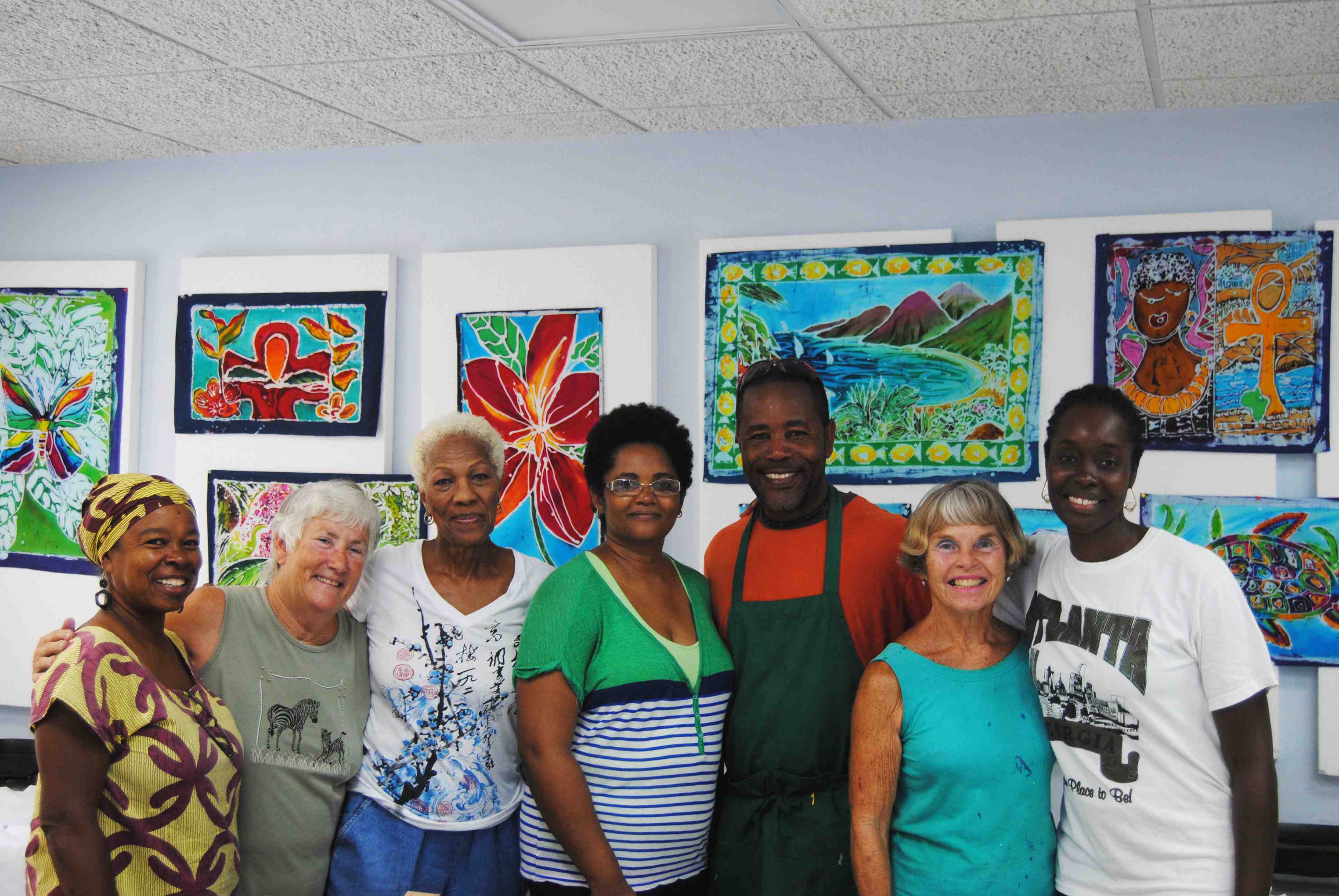
On Friday, the last day of the workshop, the art studio on UVI’s St. Thomas campus was full of pans of wax, jars of dye, paintbrushes and cloth. Students from were busy pinning up their batik fabrics. Some of the patterns were basic, featuring dots and wavy lines or hibiscus flowers, but even these pieces featured both vivid colors and a new technique the learned during their week with Reece.
Born and based in Barbados, Reece has worked almost exclusively in batik for the last 34 years. His studio in St. Thomas, Barbados showcases his work as well as the workshops he teaches. Visit his website at www.batikartbarbados.com.
Although he began painting in watercolor and acrylic, Reece says he discovered the batik technique in college. He grinned as he explained, "The most exciting part is that you never know what the results will be." Reece says batik is a "resist technique," similar to tie-dye, because wax is used to "resist" the dye painted onto the cloth.
The artists in training have learned a number of finessed techniques, but the basic idea is to use wax to create patterns and designs on the material before using a variety of dyes to color the full image. Once the dye has set, the material is boiled to release the wax and return the fabric to its "natural state," as Reece calls it. The fabric can be any 100-percent natural fiber, such as the cotton the class used.
One student, retired art and graphics teacher Mary Davis, had worked in batik prior to the start of this training two years ago, but says she has loved learning new techniques from Reece. When asked about why she joined the workshop, Davis said passionately: "Art is the language of humanity — we can’t push it aside."
Sharon Nieves, another student who began working in batik two years ago when the program first began, made two shirts. When Nieves first saw a poster for the workshop, she said it was a dream come true. Her work designing clothing is in line with the goal of the program: to give women an independent means of generating an income.
Caryl Johnson, program supervisor of the Cooperative Extension Services at UVI, emphasized that a main focus of the program is to create opportunities for emerging entrepreneurs.
Nieves’ shirts are one example of how the batik method might translate to income. Johnson, who also is an enthusiastic student of batik, said that although the workshop has been running for two years — meeting for two hours a day each semester and in the summer — the women have "really blossomed thanks to Henderson."
All of the women agreed that learning this new technique has been both challenging and exciting.
Kathy Butler of Water Island was so excited after her first workshop class she couldn’t sleep. When the possibility of selling batik products as local crafts and art arose, the room erupted in passionate discussions about the need for a resurgence of truly local creations.
The workshop was made possible through a grant from the Virgin Islands Council on the Arts. Johnson has reapplied for the grants in hopes of continuing the successful project. The workshop already has made community connections, as the frames on which the fabric is tacked — like canvas — were made by My Brother’s Workshop. Johnson said the frames have worked so well that Scott Bradley, who runs My Brother’s Workshop, will soon be making more.
At the end of the day, the batik workshop supports the premise of the marketable skills program. As Reece said, now the students can "utilize what they have learned and do something constructive."
For more information on the programs offered through CES at UVI, visit the center’s website www.uvi.edu/community/cooperative-extension-service/default.aspx or call the center at 693-1080.






